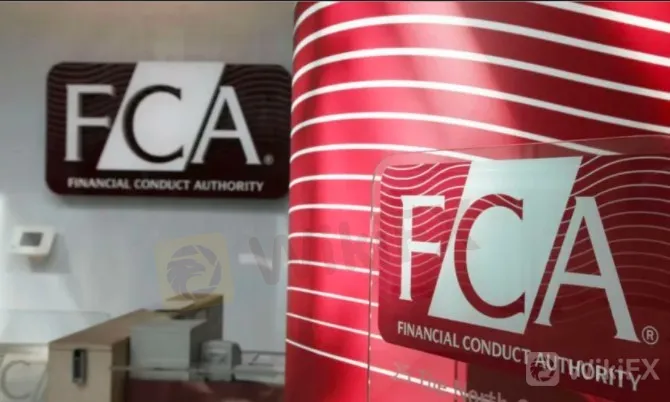简体中文
繁體中文
English
Pусский
日本語
ภาษาไทย
Tiếng Việt
Bahasa Indonesia
Español
हिन्दी
Filippiiniläinen
Français
Deutsch
Português
Türkçe
한국어
العربية
UK FCA ANALYZES REGULATORY FRAMEWORK FOR SYNTHETIC DATA
Abstract:The Financial Conduct Authority, UK’s financial watchdog
“We are interested in what the industry sees as the role of the regulator in the provision of synthetic data, particularly regarding our competition remit, and the appetite of firms to collaborate with regulators and/or other organisations to generate synthetic data.”
The Financial Conduct Authority, UKs financial watchdog, has called for input from the industry – academics, incumbents. start-ups. RegTechs and FinTechs, technology firms, regulators and policy-making bodies – in regard to “synthetic data”.
The regulator stated that it wants to understand the existing market maturity of ‘synthetic data’ within financial services and its potential for safely opening data sharing between firms, regulators, and other public bodies.
SENSITIVE PERSONAL DATA SUBJECT TO DATA PROTECTION OBLIGATIONS
Arguing that data, which drives valuable innovation in an increasingly digital financial services sector, needs to be protected and consumers right to privacy safeguarded, the government body further explained its intentions.
Increasingly, innovation within financial services is data-driven, requiring large volumes of high-quality data to develop and train accurate, effective models and systems.
“However, financial data – such as consumer transaction records, account payments, or trading data – is sensitive personal data subject to data protection obligations, as well as often being commercially sensitive”, the agency said, adding that this is where they believe synthetic data can help.
“To ensure that our innovation services remain fit-for-purpose in the digital age, we are asking for your input. We want to better understand different market participants views on the extent to which synthetic data can expand data access and data sharing opportunities in the market.”
The FCA is also evaluating the maturity of synthetic data usage within financial services, and the extent to which both regulated and unregulated firms are using it.
“Finally, we are interested in what the industry sees as the role of the regulator in the provision of synthetic data, particularly regarding our competition remit, and the appetite of firms to collaborate with regulators and/or other organisations to generate synthetic data.”
The FCA, as many other major financial corporations and organizations, is already using synthetic data to build sophisticated fraud-detection models to assess a customers level of financial vulnerability, and to make nuanced, accurate, SME lending decisions.
While the main drivers are privacy protection and acquiring enough quality data to test and train machine learning models, synthetic datasets have other compelling benefits, too.
A JP Morgan report found that traditional machine learning techniques struggle to detect anomalies in the highly imbalanced “real” datasets used to train fraud detection models. Synthetic data generation, on the other hand, allows firms to tackle class imbalance in these datasets, leading to far more accurate results.

Disclaimer:
The views in this article only represent the author's personal views, and do not constitute investment advice on this platform. This platform does not guarantee the accuracy, completeness and timeliness of the information in the article, and will not be liable for any loss caused by the use of or reliance on the information in the article.
Read more

How to Know if the Market is Correcting or Reversing?
In trading, distinguishing between a market correction and a market reversal is crucial for making sound decisions. Misjudging one for the other can lead to missed opportunities or significant losses. While both involve price movements, their causes, duration, and implications differ substantially. Understanding these differences can help traders improve their strategies and adapt to market conditions effectively.

Robinhood Launches Options Trading in the UK by 2025
Robinhood to introduce options trading in the UK by 2025 following FCA approval. Discover how this expansion aligns with Robinhood's strategy for global growth and new features.

WikiFX Review: Is Ultima Markets Legit?
Ultima Markets has played a significant role in the forex trading industry for decades. WikiFX created a comprehensive review to help you better understand this broker. We will analyze its reliability based on specific information, regulations, etc. Let’s get into it.

WikiFX Review: Is FXTRADING.com still reliable?
FXTRADING.com is an online brokerage firm that offers trading services for various financial instruments such as forex, cryptocurrencies, shares, commodities, spot metals, energies, and indices. WikiFX has comprehensively reviewed this broker by analyzing its regulations, specific information, etc. so that you have a deep understanding of this broker.
WikiFX Broker
Latest News
Two Californians Indicted for $22 Million Crypto and NFT Fraud
RM62k Lost Investment Scam After Joining XRP Community Malaysia on Telegram
Victims of Financial Fraud in France Suffer Annual Losses of at Least €500 Million
WikiFX Review: Is Ultima Markets Legit?
Colorado Duo Accused of $8M Investment Fraud Scheme
What Impact Does Japan’s Positive Output Gap Have on the Yen?
Macro Markets: Is It Worth Your Investment?
Trading is an Endless Journey
Malaysia Pioneers Zakat Payments with Cryptocurrencies
FCA's Warning to Brokers: Don't Ignore!
Currency Calculator


